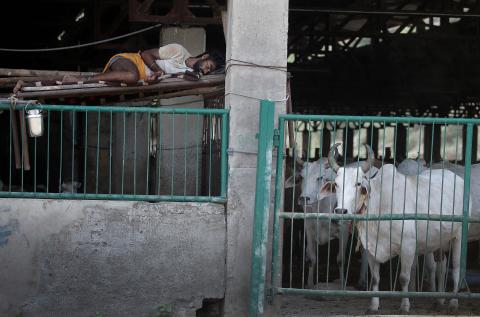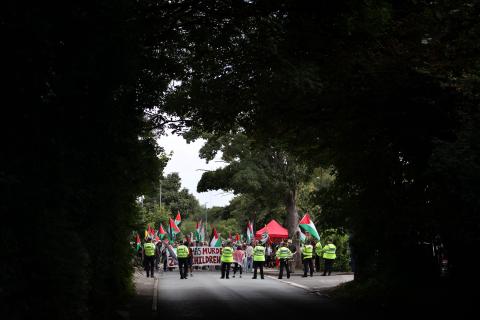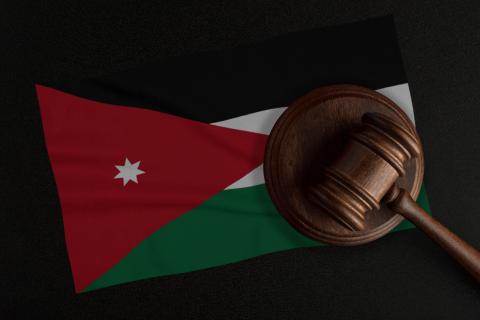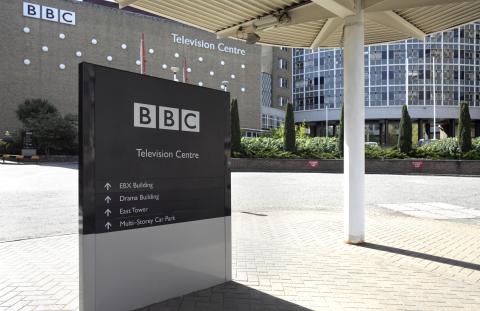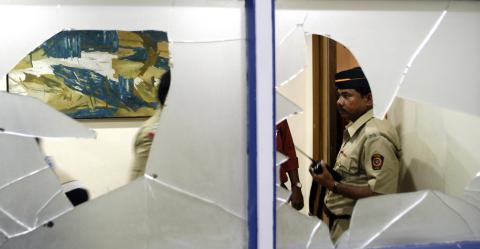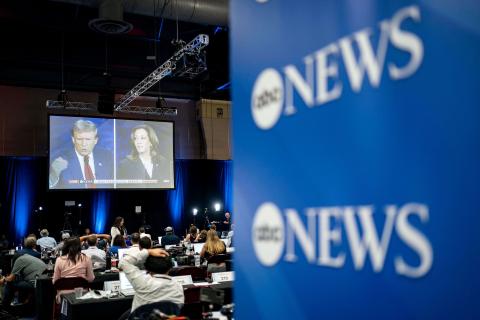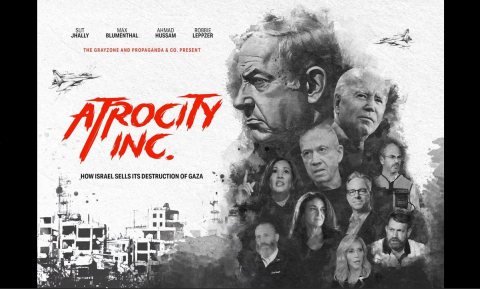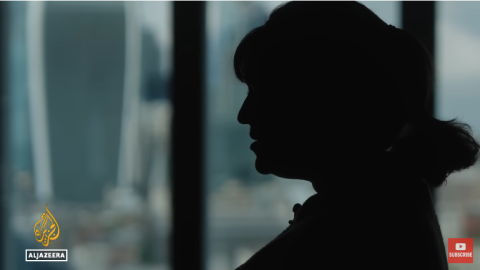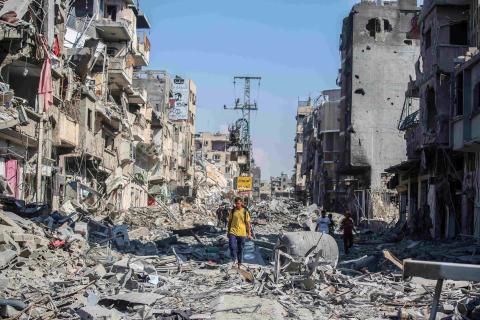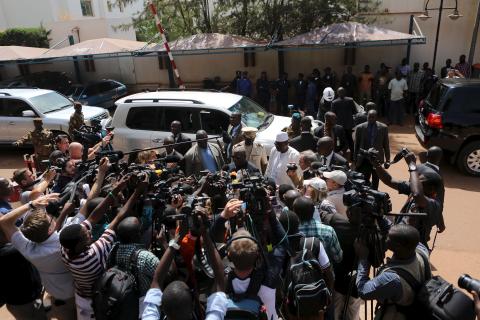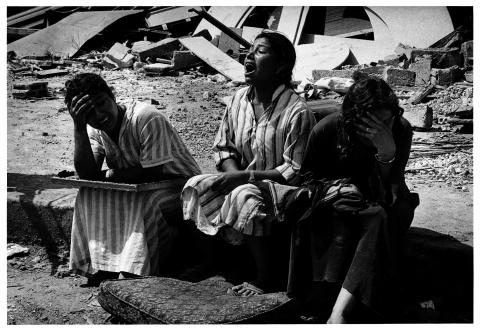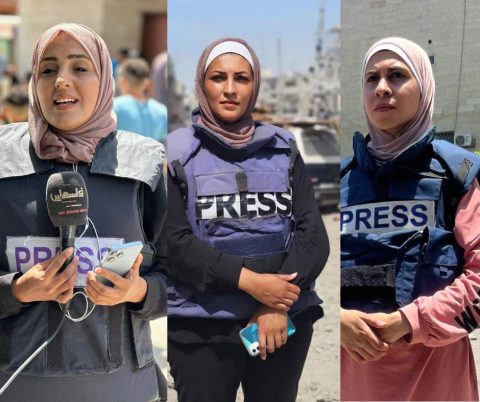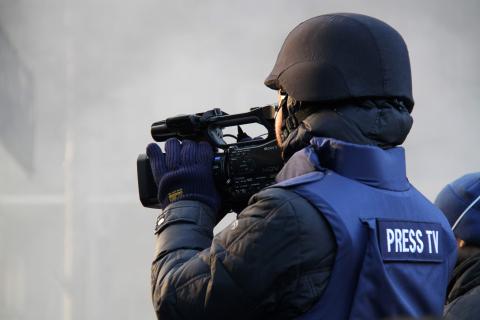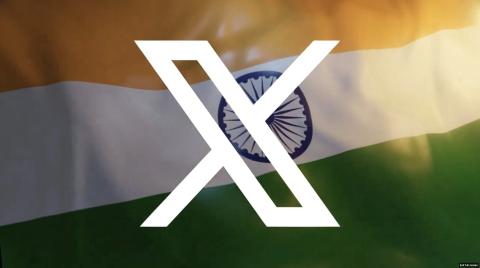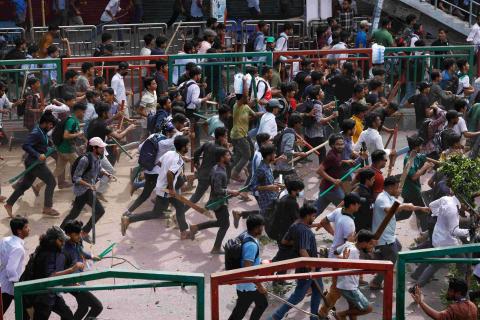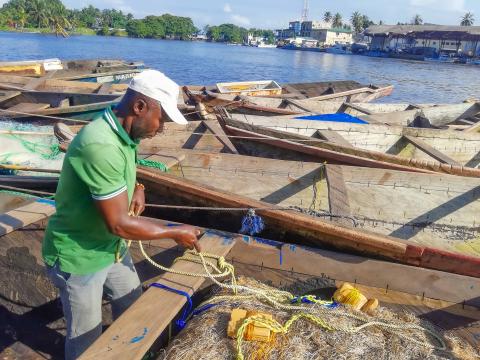Al Jazeera Journalism Review
What Explains the Indian Media’s Silence on Muslim Lynchings?
A review of why the Indian media is biased in its coverage of cow vigilantes' lynchings, highlighting how the killing of a Hindu boy by such vigilantes sparked widespread outrage, while the lynching of a Muslim man over similar allegations was largely ignored, reflecting deeper anti-Muslim bias under the ruling BJP government.

Challenging the Narrative: Jeremy Scahill on the Need for Adversarial Journalism
Investigative journalist Jeremy Scahill calls for a revival of "adversarial journalism" to reinstate crucial professional and humanitarian values in mainstream Western media, especially regarding the coverage of the Gaza genocide.

Freedom of the Press in Jordan and Unconstitutional Interpretations
Since the approval of the Cybercrime Law in Jordan, freedom of opinion and expression has entered a troubling phase marked by the arrest of journalists and restrictions on media. Musab Shawabkeh offers a constitutional reading based on interpretations and rulings that uphold freedom of expression in a context where the country needs diverse opinions in the face of the Israeli ultra right wing politics.

More than 230 Media Professionals Call on BBC to Recommit to Fairness, Accuracy, and Impartiality in its Gaza Coverage
Over 230 members of the media industry, including more than 100 BBC employees, have signed a letter to BBC Director General Tim Davie accusing the BBC of being biased in its coverage of Israel's war in Gaza.

Corporate Dominance and the Erosion of Editorial Independence in Indian Media
Corporate influence in Indian media has led to widespread editorial suppression, with media owners prioritising political appeasement over journalistic integrity, resulting in a significant erosion of press freedom and diversity in news reporting.

MSNBC Deletes Interview with Journalist Criticising Western Media’s Bias Towards Israeli Narrative
MSNBC deleted an interview with journalist Jeremy Scahill after he criticised American media’s biased portrayal of Israeli actions in Gaza, condemning the framing of civilian casualties as "self-defence." Scahill argued that any discussion of Gaza’s leaders must address the broader context of occupation and longstanding injustices faced by Palestinians.

Voting in a Time of Genocide
The upcoming U.S. presidential election occurs against the backdrop of the ongoing genocide in Gaza, with AJ Plus prioritising marginalised voices and critically analysing Western mainstream media narratives while highlighting the undemocratic aspects of the U.S. electoral system.

Journalists Should Not Embrace the Artificial Intelligence Hype
What factors should journalists take into account while discussing the use of AI in the media?

Atrocity Inc.: What Max Blumenthal's New Documentary Reveals About Western Media's Complicity in Israeli Propaganda
A digest of Max Blumenthal's new documentary, Atrocity Inc., in which he uncovers how the Israeli PR machinery and propaganda efforts were carefully and intentionally designed to manufacture consent for a campaign of mass death against Palestinians. It reveals how the Western media, especially in the United States, supported Israel's misinformation war.

A Year of Genocide and Bias: Western Media's Whitewashing of Israel's Ongoing War on Gaza
Major Western media outlets continue to prove that they are a party in the war of narratives, siding with the Israeli occupation. The article explains how these major Western media outlets are still refining their techniques of bias in favor of the occupation, even a year after the genocide in Palestine.

Failing Gaza: Pro-Israel Bias Uncovered Behind the Lens of Western Media
Journalists at CNN and the BBC expose the inner workings of their newsrooms, a year into Israel’s war on Gaza.

A Half-Truth is a Full Lie
Misinformation is rampant in modern conflicts, worsened by the internet and social media, where false news spreads easily. While news agencies aim to provide unbiased, fact-based reporting, their focus on brevity and hard facts often lacks the necessary context, leaving the public vulnerable to manipulation and unable to fully grasp the complexities of these issues.

Guns, Threats, and Poverty: The Daily Struggles of an African Journalist
The welfare of African journalists continues to deteriorate, from poor wages to security risks, arrests, detention, and even death. This common, ongoing trend generally affects the wellbeing of journalists during their discharge of duties, and these overlooked difficulties tend to affect the quality and output of their work.

Testimonies of the First Witness of the Sabra & Shatila Massacre
The Sabra and Shatila massacre in 1982 saw over 3,000 unarmed Palestinian refugees brutally killed by Phalangist militias under the facilitation of Israeli forces. As the first journalist to enter the camps, Japanese journalist Ryuichi Hirokawa provides a harrowing first-hand account of the atrocity amid a media blackout. His testimony highlights the power of bearing witness to a war crime and contrasts the past Israeli public outcry with today’s silence over the ongoing genocide in Gaza.

How to Bring more Balance to Western Media Coverage of Israel and Palestine
How can journalists accurately cover Palestine without becoming unbalanced or biased? Here are some concrete tools and techniques for reporters to keep in mind.

Journalist Mothers in Gaza: Living the Ordeal Twice
Being a journalist, particularly a female journalist covering the genocide in Palestine without any form of protection, makes practicing journalism nearly impossible. When the journalist is also a mother haunted by the fear of losing her children, working in the field becomes an immense sacrifice.

Anonymous Sources in the New York Times... Covering the War with One Eye
The use of anonymous sources in journalism is considered, within professional and ethical standards, a “last option” for journalists. However, analysis of New York Times data reveals a persistent pattern in the use of “anonymity” to support specific narratives, especially Israeli narratives.

Monitoring of Journalistic Malpractices in Gaza Coverage
On this page, the editorial team of the Al Jazeera Journalism Review will collect news published by media institutions about the current war on Gaza that involves disinformation, bias, or professional journalistic standards and its code of ethics.

India’s Social Media Crackdown; Broader Implications for Journalism
India’s crackdown on X-Twitter accounts documenting hate crimes highlights the increased risks faced by journalists who report on these issues. The suppression of such accounts significantly hampers the ability of journalists to access and report critical information on hate crimes.
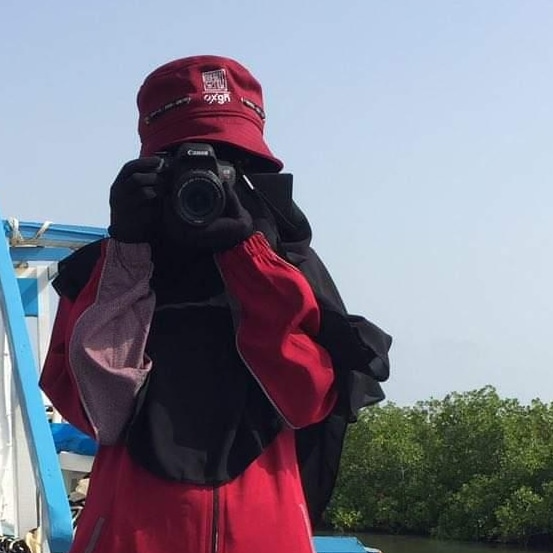
Bangladesh: Why Were Foreign Correspondents Absent?
In the recent political upheaval in Bangladesh, many foreign journalists were reporting from nearby regions like New Delhi. In this absence, local journalists played an important role in conveying firsthand accounts of the events that unfolded to the world.

Cameroonian Journalists at the Center of Fighting Illegal Fishing
While the EU’s red card to Cameroon has undeniably tarnished its image, it has paradoxically unlocked the potential of Cameroonian journalists and ignited a movement poised to reshape the future. Through this shared struggle, journalists, scientists, conservationists, storytellers, and government officials have united, paving the way for a new era of ocean advocacy.

